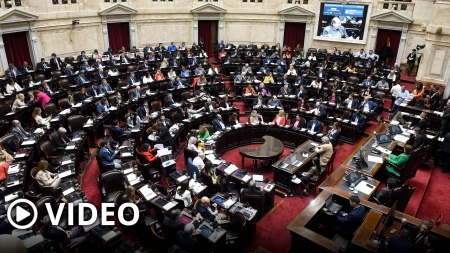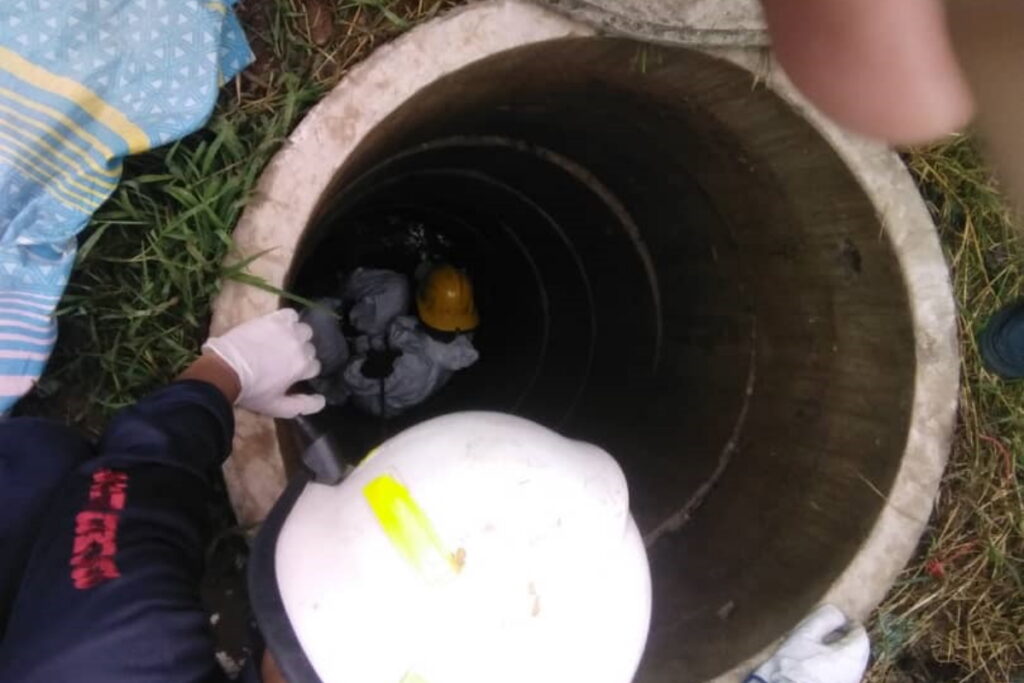The Chamber of Deputies began this afternoon the special session to debate the 2023 Budget project, which projects a growth of the Gross Domestic Product (GDP) of 2%, an inflation of 60%, a deficit of 1.9 percent and that will allocate more than 70% of the resources to social expenses.
Promoted by the Front of All, the session began at 1:45 p.m. could last for 20 hourswith which the vote in general would take place around 3 in the morning, and then advance with the articles in particular.
The session began with the presence of 130 legislators in the room belonging to the Frente de Todos, United Provinces, Radical Evolution and the UCR.
“It is not a budget adjustment”
The deputy of the Frente de Todos Carlos Heller affirmed that the project of expenses and resources promoted by the ruling party for 2023 “is not an adjustment budget” and rejected that the items destined for social expenses have decreased, noting that they add up to more than 300,000 million of weights.
Speaking as an informant member of the majority, at the beginning of the session, Heller assured that the 2023 Budget “is oriented towards investment in infrastructure that will play a worrying role, to strengthen the health system, education at all levels, the extension of scholarships, science and innovation and the promotion of employment”.
“We have seen some journalistic reports that have focused on the budget of the Ministry of Education, but that is only a partiality of the expense assigned to this concept. The logical thing is to analyze the expenses by purpose and function in which the expenses that come from different sources are integrated. For example, there are items that are in the Ministry of Works and that have to do with the construction of buildings for schools but that are part of the expenses for Education,” said the legislator.
In this context, he pointed out that social items have been increased by an amount of 322 billion pesos, with which “it is not an adjustment budget.”
He also referred to the inflationary process that exists in the country and in this sense he pointed out that “the search for a gradual decline without resorting to an anti-inflationary shock It is advisable because we Argentines know the consequences of anti-inflationary and devaluation shocks”.
I point out that in this framework “growth is essential to be able to face the various problems that lie ahead, although it is clear that an active State is needed to act in the regulation of the bid in favor of those who have the least and need the most”.
“There are many things ahead of us that need to be resolved and we understand that the budget bill goes in that direction,” he added.
He also stressed that the Government had to renegotiate the agreement with the IMF that the Mauricio Macri administration signed and that there was “no other way than renegotiation, since if not in 2022, 19 billion dollars would have to be paid and that was impossible. That is why we have reached a possible agreement.”
In his presentation, Heller highlighted the growth in economic activity after “having overcome the pandemic by pointing out the 6.4% year-on-year rise registered in August compared to the same month in 2021.”
The main opposition coalition will vote divided
The “Together for Change” interblock will vote dividedly on the 2023 Budget project in the Chamber of Deputies, since while the Civic Coalition and United Republicans will vote against it, the PRO will abstain and Radical Evolution and Federal Meeting will pronounce positively .
The radical caucus – led by Mario Negri – is still debating whether it will abstain or whether it will vote in favor in general.
Opposition parliamentary sources pointed out that there was no consensus to unify a single position for the general vote on the Budgeta vote that will take place around 2 or 3 in the morning, after exhausting the debate that will last eleven hours.
Although there was no consensus to have a unified position for the vote in general, there is an agreement to jointly reject certain articles in the discussion in particular that are objected to by the dozen benches that make up JxC.
These are the articles that cease to exempt judges, officials and employees of the Judiciary from paying Income Tax, as well as those referring to authorizing the Government to raise withholdings, changes in Income related to the Truckers’ Guild and increase in taxes on electronic products.
The PRO bench – chaired by Cristian Ritondo – issued a statement this afternoon announcing that it will abstain because “although the government has agreed to incorporate some clauses that Together for Change have requested, it has also refused to review several items that we will oppose in the vote in particular.
“We are absolutely against some articles and that is why in the vote in particular we will oppose delegating to the Executive Power the increase in withholdings, the creation of special customs zones, and in general the delegation of legislative powers in the Executive power”.
On the other hand, from the beginning of the debate, the Radical Evolution bench – whose main reference is Martín Lousteau – expressed its willingness to generally accompany the project designed by the Minister of Economy, Sergio Massa, as Emilio Yacobitti anticipated at the time.
The ruling party even accepted the modifications proposed by that sector, such as the deduction of up to 40 percent of earnings in educational expenses.
She was also always in favor of accompanying the Federal Meeting Budget, whose head, Margarita Stolbizer, proposed the clause so that in the event of an increase in inflation or collection there is a complementary law to correct the Budget forecasts.
The PRO debated today whether to vote against or abstain, but there the position of the moderates prevailed and they decided to abstain.
The opposition
Radical Evolution and Federal Meeting are two of the ten blocks that will vote in general in favor of the project, while the PRO will abstain and the United Republicans and Civic Coalition will do so against.
The radical caucus led by Mario Negri is still discussing whether it will vote in favor or abstain from the general vote.
?️| PARLIAMENTARY WORK
The meeting ended with the President of the Chamber @ceciliamoreauok and the Block Chiefs, to organize the #SpecialSession.
I followed the live broadcast from our networks.#JoiningVoices?? pic.twitter.com/QjqnanNEl8
– Deputies Argentina (@DiputadosAR) October 25, 2022
Prior to the session, the Parliamentary Labor Commission -headed by Cecilia Moreau- met, where it was defined that there will be eleven hours of debate and then, after the general vote, the discussion will begin in particular.
The ruling party is already guaranteed the approval of the project because it has 117 legislators from the FdT, 8 from the Federal Interbloc, 4 from the United Provinces, 1 from the Neuquén Popular Movement, and hopes to add two from the Ser caucus, with which it has secured more out of 130 votes
The discussion in the plenary session of the body will take place in the midst of a strong debate for the inclusion of an article that eliminates the exemption in the payment of income tax enjoyed by members of the Judiciary, for a total amount estimated at around of $237 billion.
On Monday, a meeting of the Budget and Finance Commission was held with the leadership of the Association of Judges and Officials of the National Justice, who made explicit their rejection of the article included by the Front of All in the majority opinion.
Among the different political forces, The debate was also focused on the 60% inflation guideline projected by the ruling party for 2023as well as on transportation subsidies to the provinces, the power to increase withholdings and the resources allocated to social spending and education.
The Chamber of Deputies debates the 2023 Budget in a session that will last more than 12 hours
WATCH VIDEO
The ruling party is already guaranteed the approval of the project because it has 117 legislators from the FdT, 8 from the Federal Interbloc, 4 from the United Provinces, 1 from the Neuquén Popular Movement, and hopes to add two from the Ser caucus, with which it has secured more of 130 votes.
The project estimates a total expenditure of almost $29 billion, with an approximate collection of $22.5 billion and a primary deficit of $6.3 billion.
The project estimates a total expenditure of almost $29 billion, with an approximate collection of $22.5 billion and a primary deficit of $6.3 billion.
Of all the points included in the 2023 Budget project, the one that modifies the profit exemption for magistrates and officials of the Judicial Power is one of the most controversial.
This is an aspect proposed by the official Marcelo Casaretto at the meeting of the Budget Commission, where he estimated that this incorporation would allow to raise some 237,000 million pesos more to the resources.
In 2017, a law provided that the judges who entered the Judiciary from that moment on would begin to pay income taxes.
However, as a consequence of the precautionary measures that they presented, there are very few magistrates whose collection of this tax is deducted from their salaries.


















